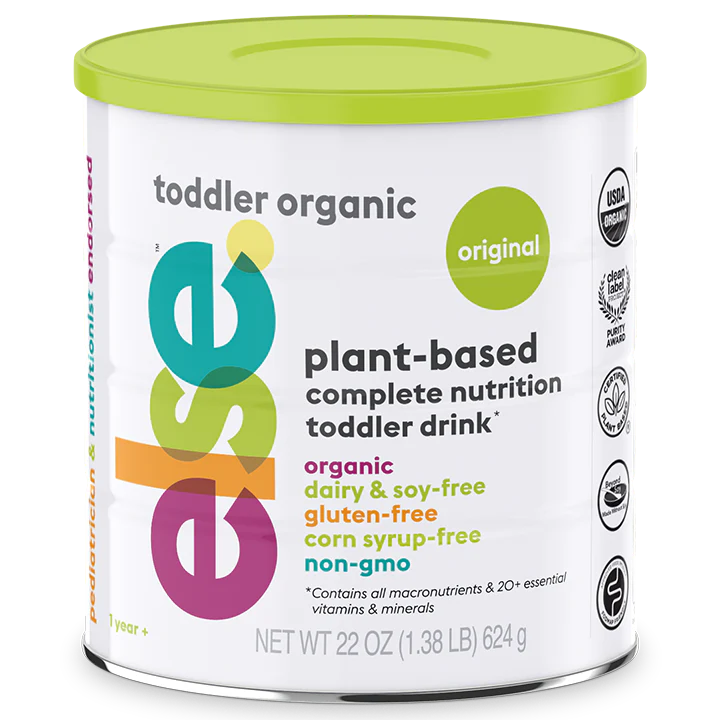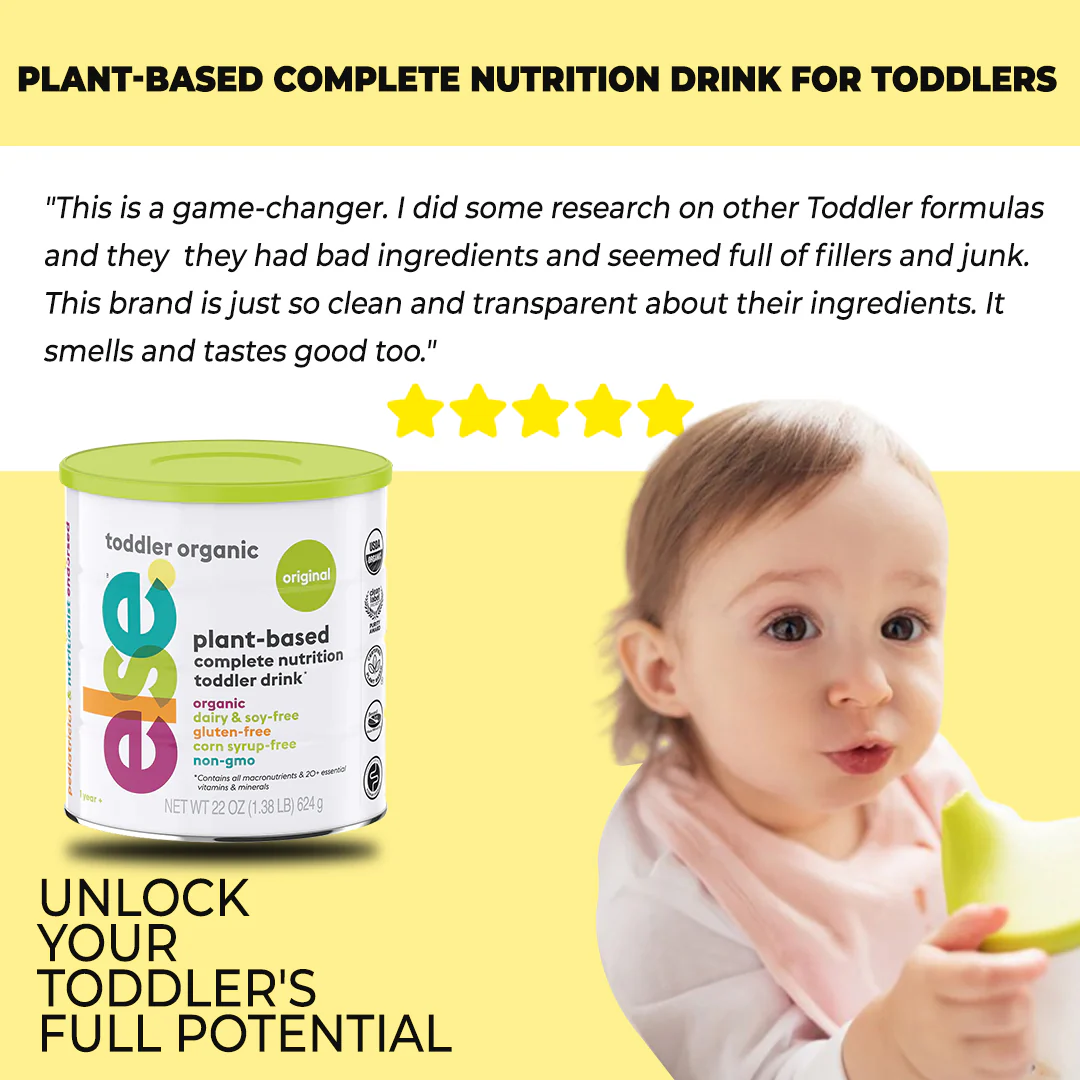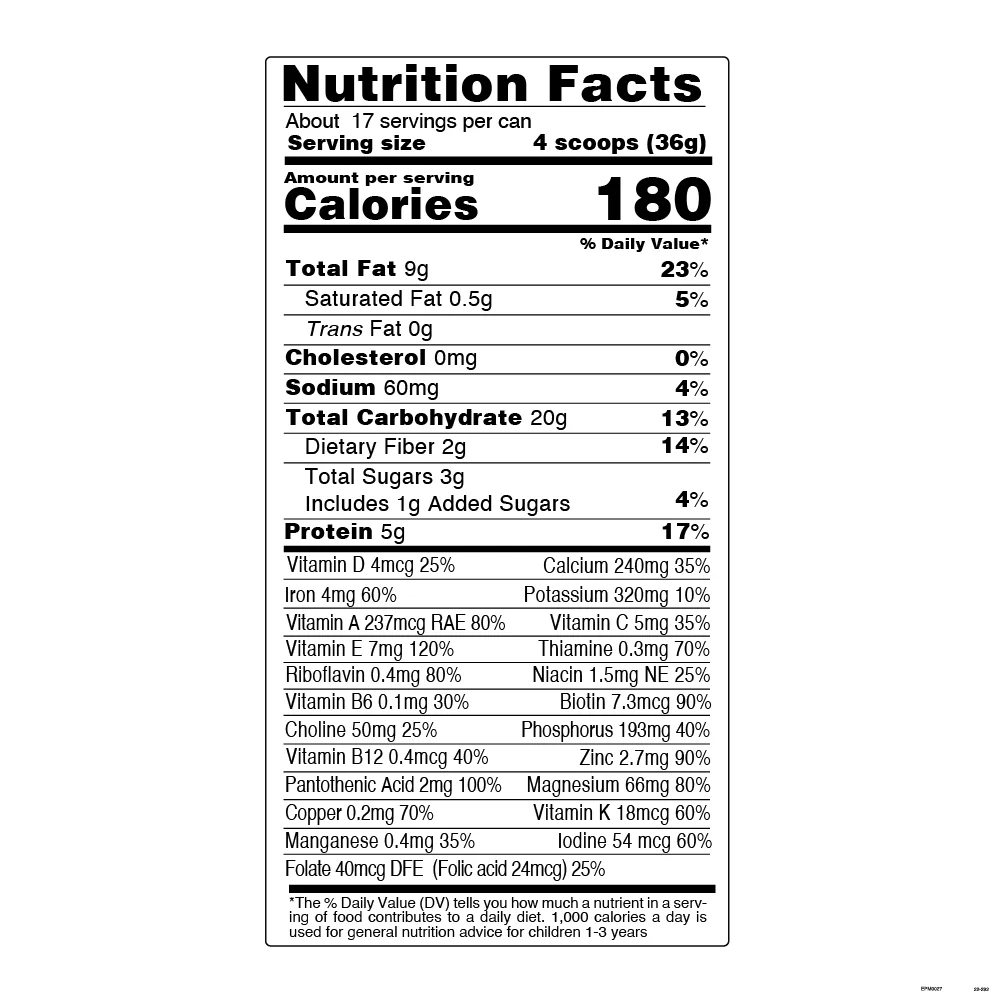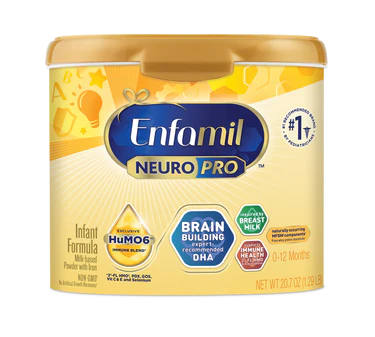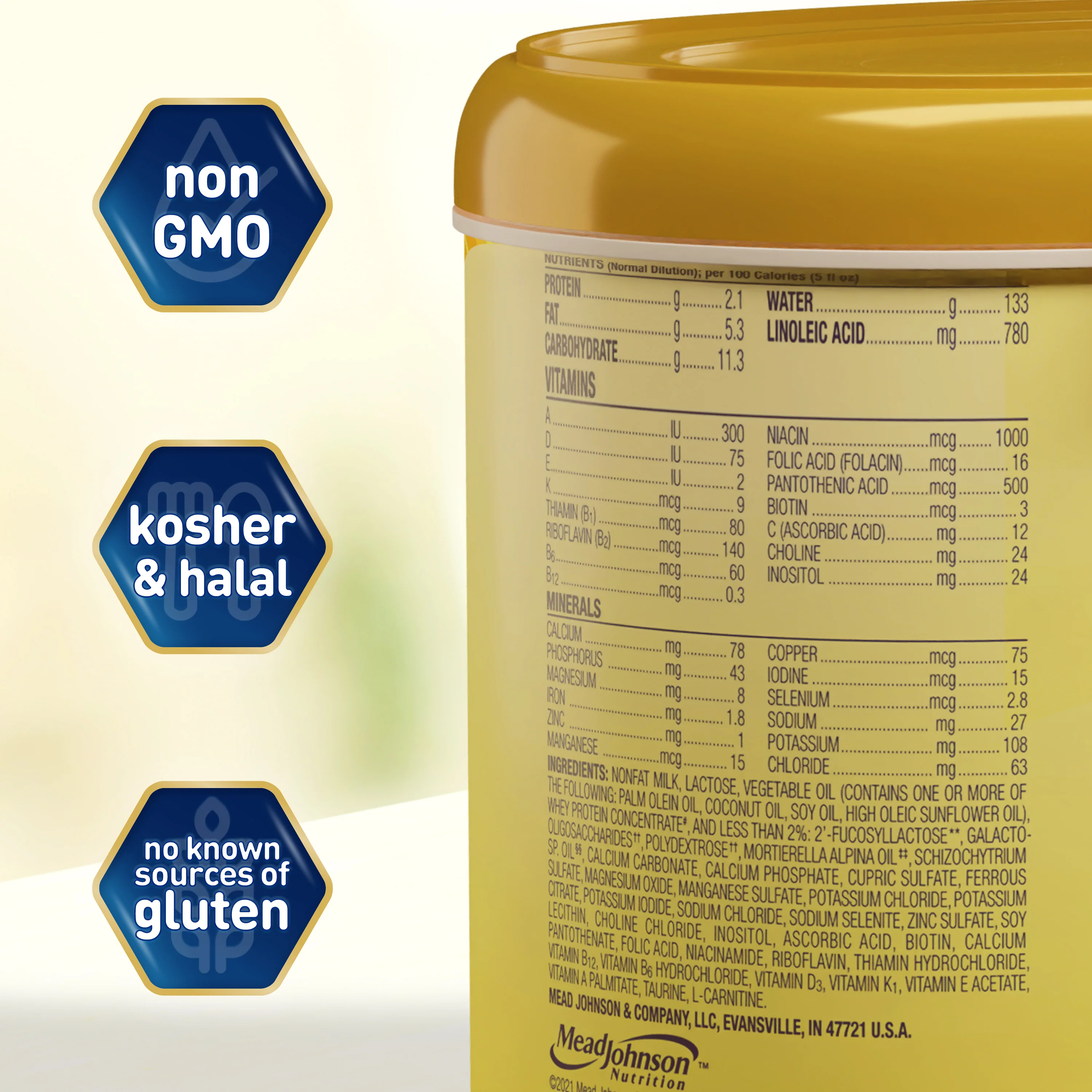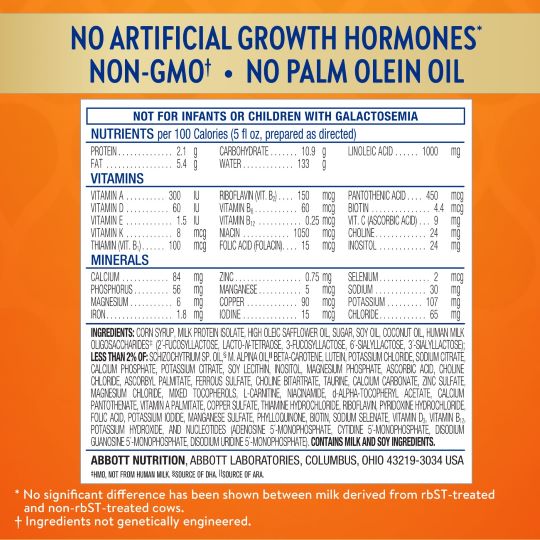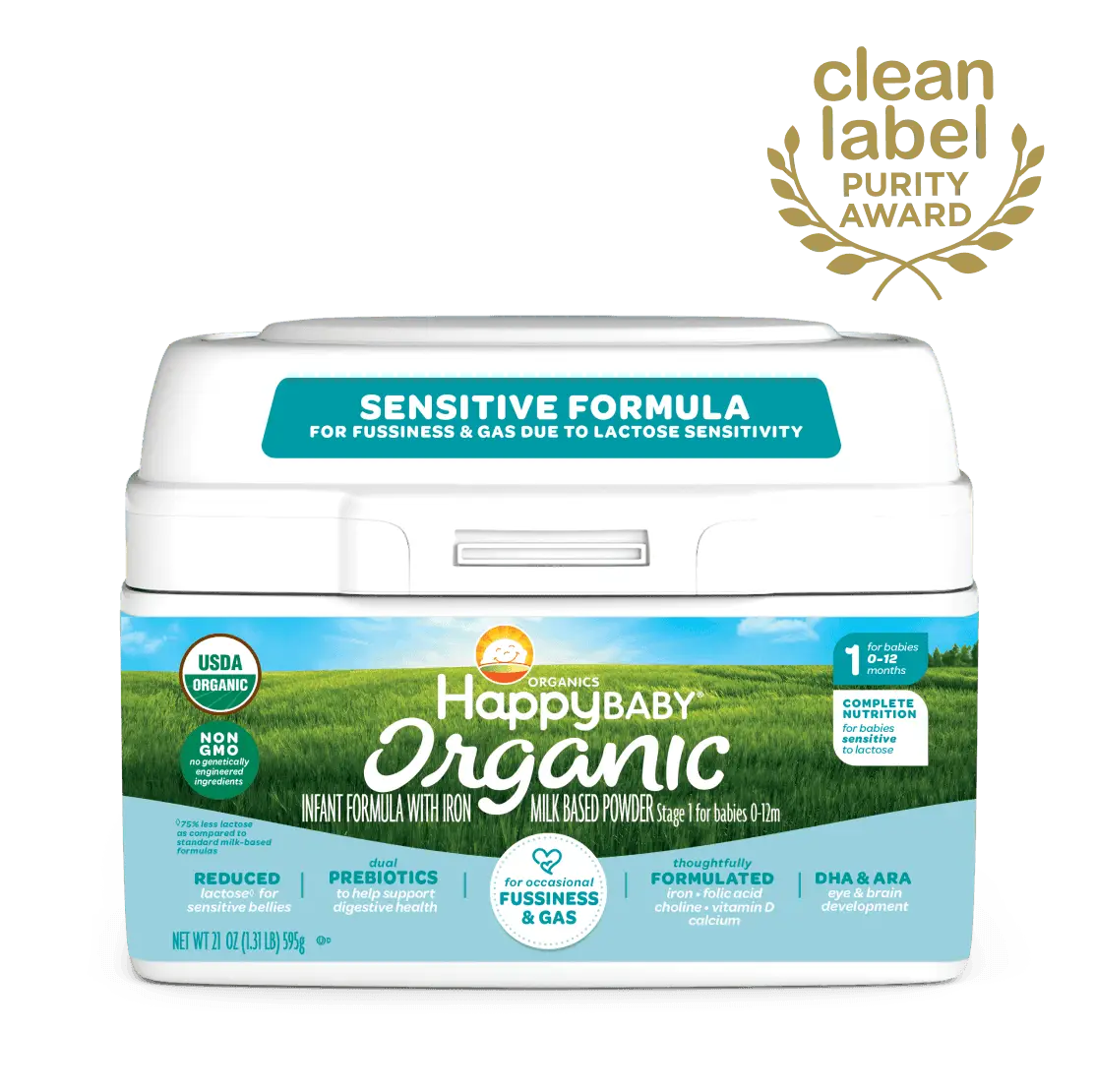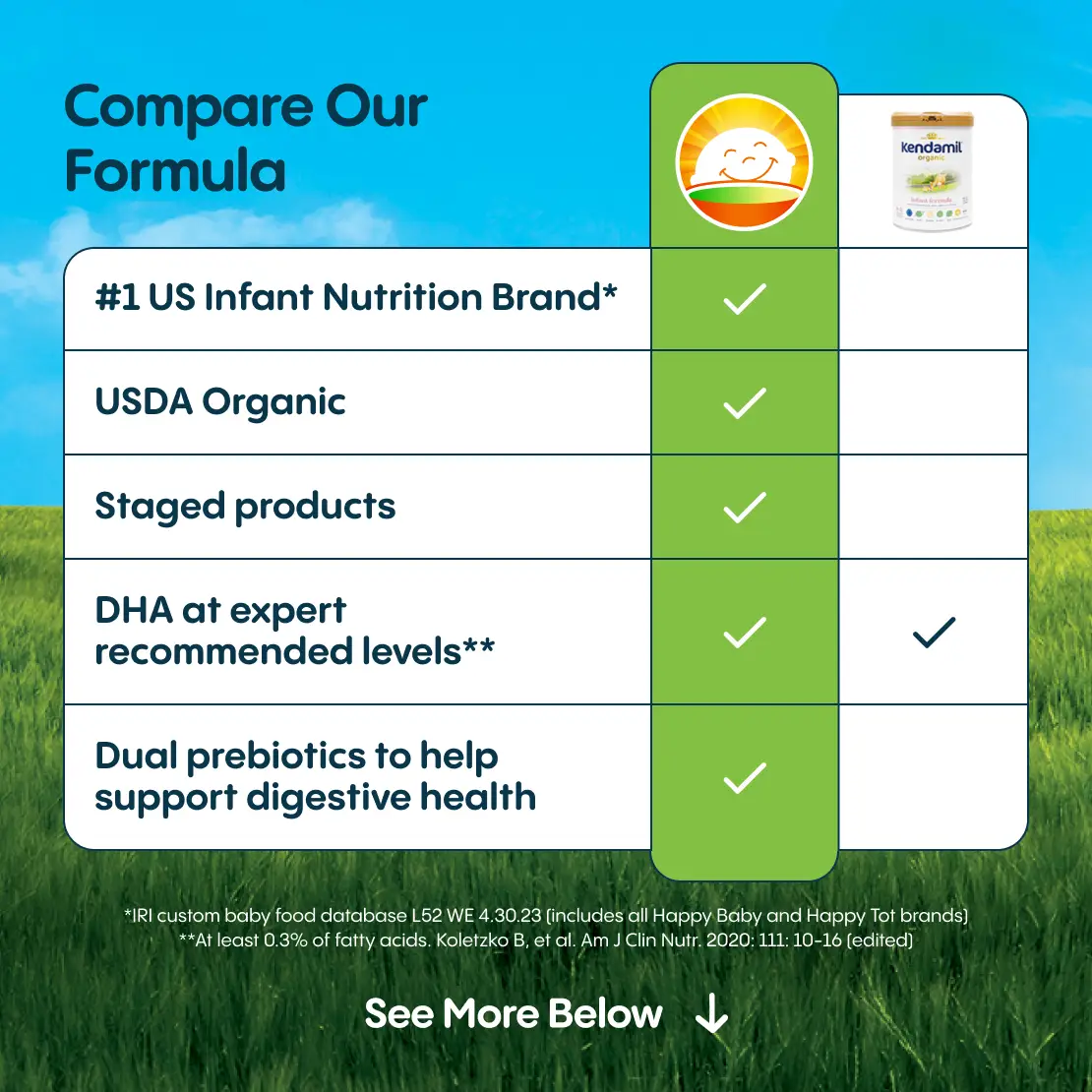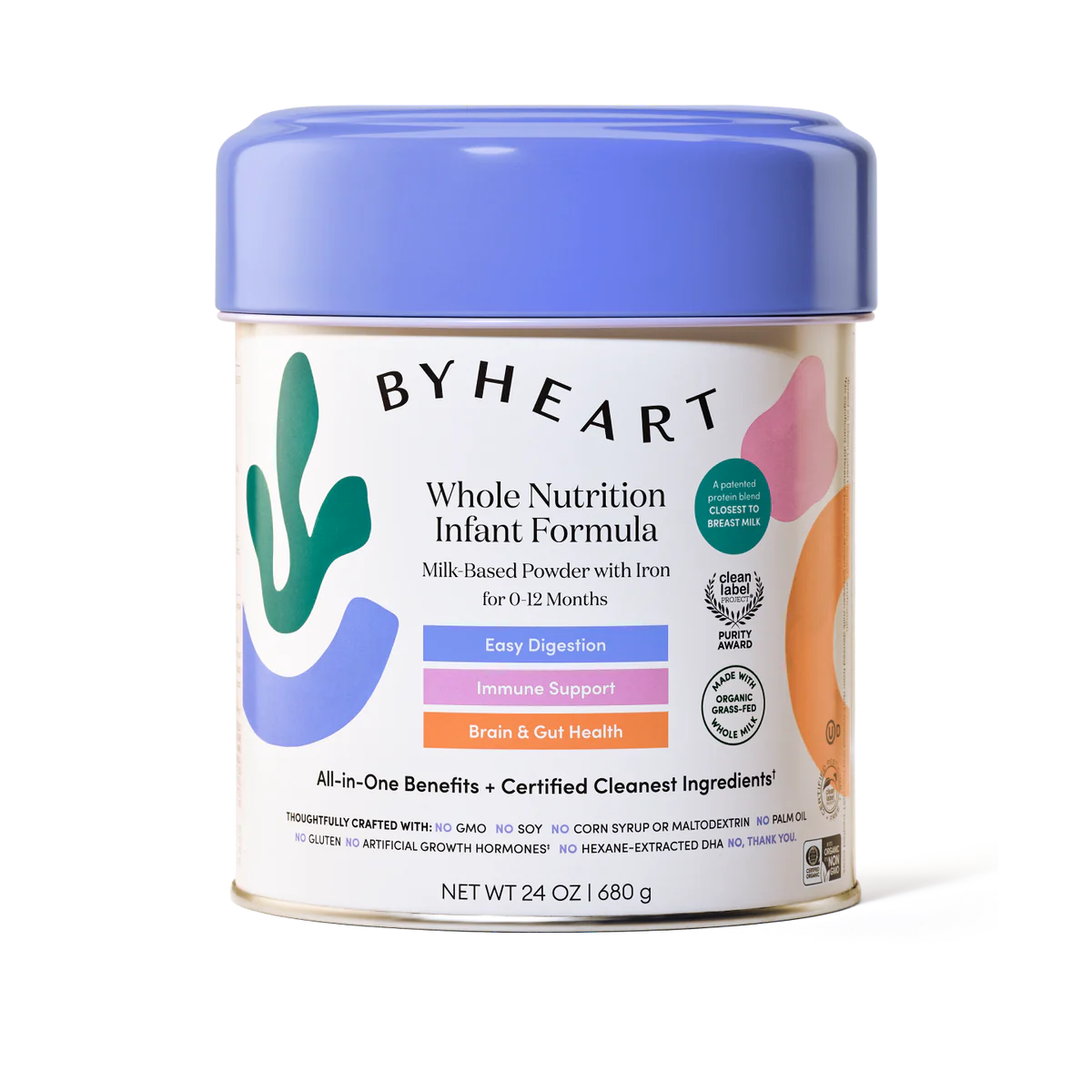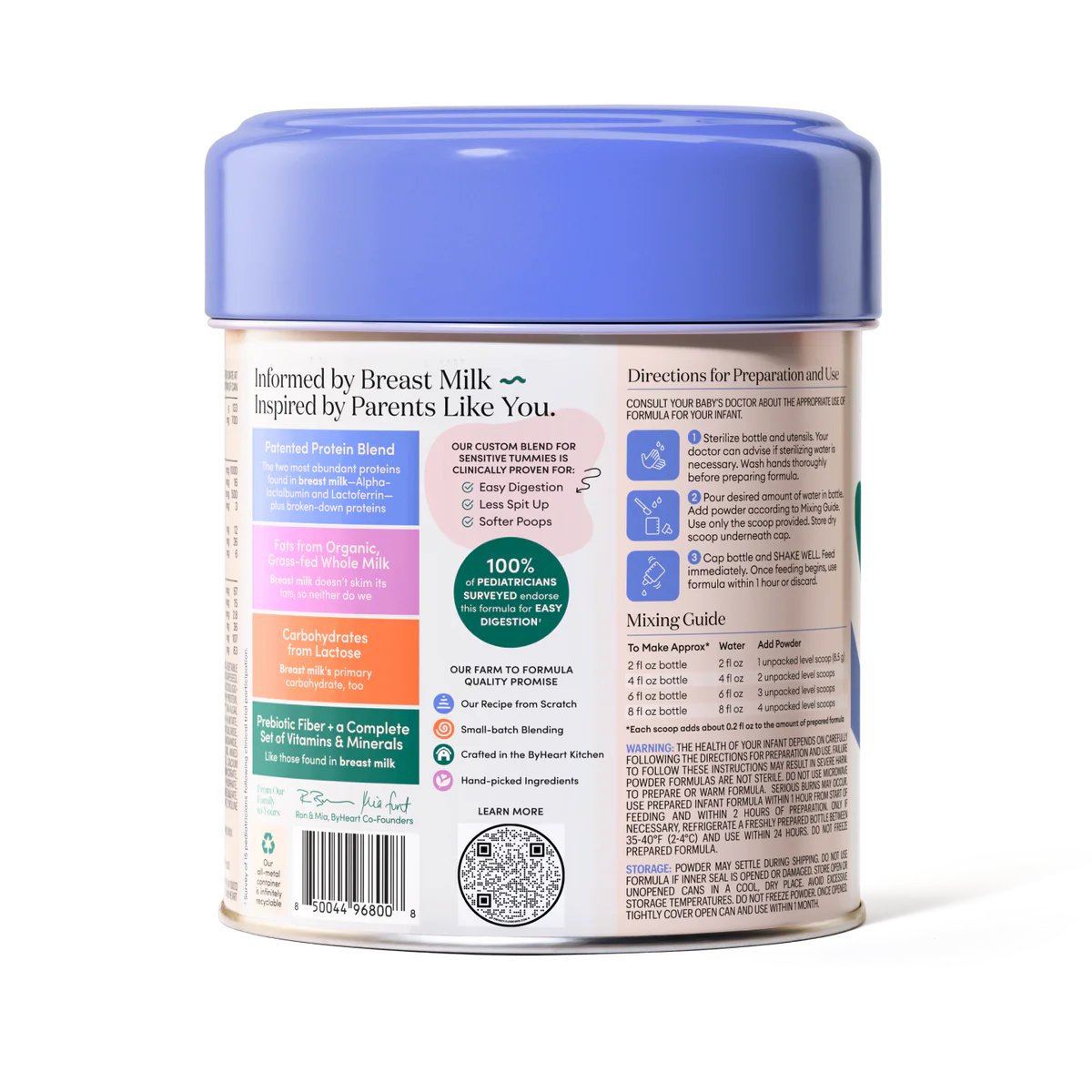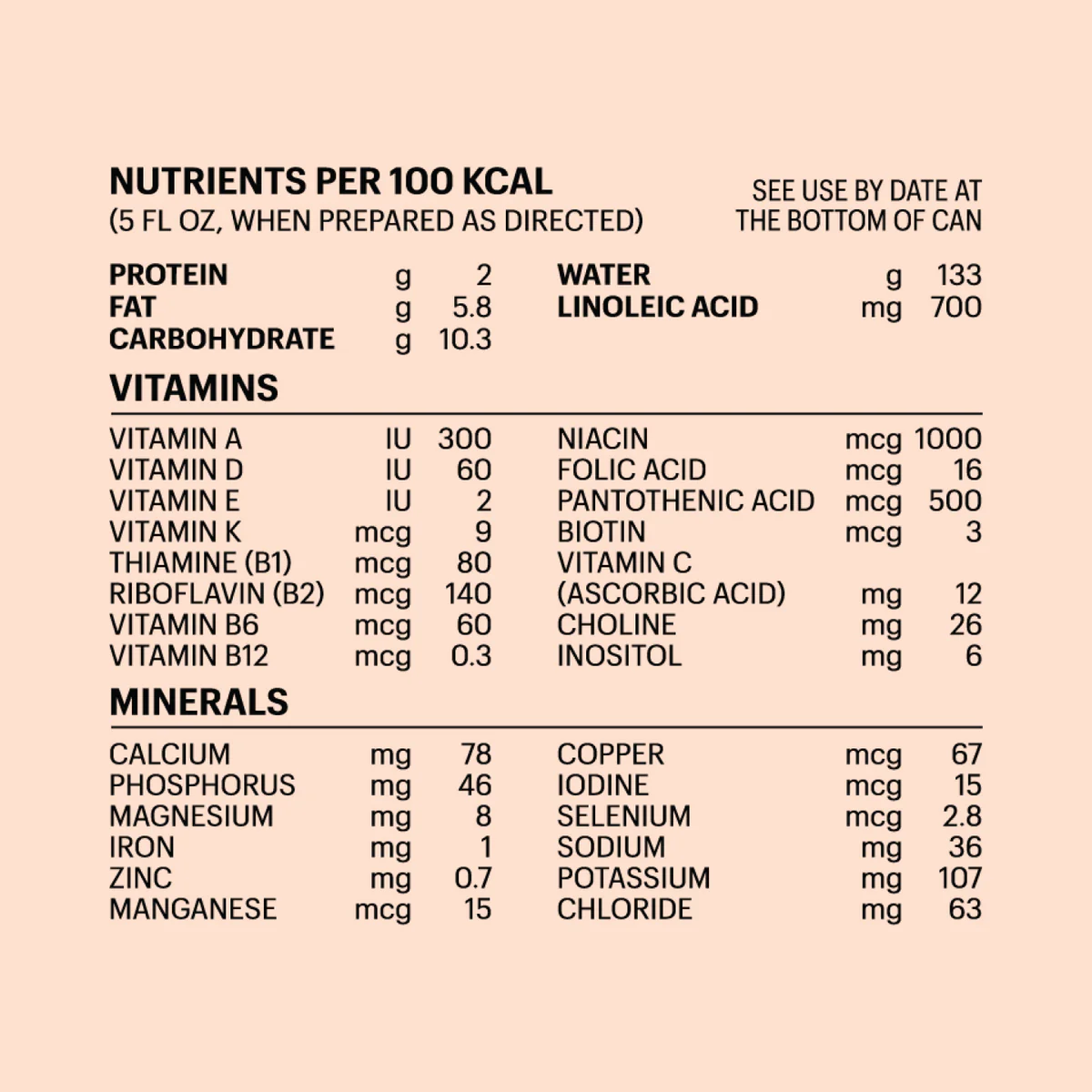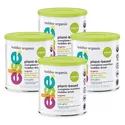5 Best Formulas for Babies Transitioning From Breast Milk
Beyond breast milk: Exploring formula options that nourish and comfort your growing child
Updated October 6, 2024

Every feeding journey is unique, and formula is a safe, scientifically-developed option that helps millions of babies thrive. While breast milk is described as the gold standard, many of today's formulas are advanced nutritional solutions that support healthy development—not a compromise.
With the perfect balance of essential nutrients, vitamins, and beneficial compounds, our recommended formulas are designed to give you confidence in your feeding decisions. This lets you focus on what matters most—cherishing every moment with your little one.
» Ready to switch to from breastfeeding? Try wholesome, organic baby formula
Our Pick: Best Formulas for Babies Transitioning From Breast Milk
- Best overall formula for babies transitioning from breast milk: Else Nutrition Plant-Based Complete Nutrition Formula
- Best hypoallergenic formula for babies transitioning from breast milk: Enfamil® NeuroPro™ Infant Formula
- Best overall formula for babies transitioning from breast milk: Similac® 360 Total Care® Sensitive* Infant Formula
- Best organic formula for babies transitioning from breast milk: Happy Family Organic Infant Formula, Stage 1 Sensitive
- Best gentle formula for babies transitioning from breast milk: ByHeart Whole Nutrition Infant Formula
When and Why to Transition To Formula
Parents typically consider switching to formula when their baby is three to six months old. Common reasons for this transition include:
- Returning to work, which can make keeping a consistent breastfeeding schedule challenging, especially for mothers who may not have adequate facilities or time for pumping during their workday.
- Creating a more flexible feeding schedule that provides more freedom in daily activities while ensuring the baby's nutritional needs are fully met.
- Addressing insufficient breast milk production, which can happen for many reasons, including hormonal changes, medication, or underlying health conditions that may impact milk supply.
- Involving partners or family members in the feeding process, which not only provides the mother with much-needed breaks but also allows for bonding opportunities between the baby and other caregivers.
» Check out these tips for a gentle transition from breastfeeding
5 Best Formulas for Babies Transitioning From Breast Milk
» Discover our expert tips for finding the right formula for your baby
How to Find the Right Formula
When selecting a formula for your transitioning baby, prioritize these essential elements:
1. Brain Health Components
Cognitive development is crucial in early infancy, making sure nutrients non-negotiable.
- Look for DHA (docosahexaenoic acid) and choline
- These nutrients support eye and brain development
- Scientific studies confirm their importance for nervous system development [1]
» Don't want commercial options? Switch to natural and organic formula
2. Prebiotics and Probiotics
A healthy gut microbiome forms the foundation for overall wellness in infants.
- Support immune and gut health
- Help diversify the baby's gut flora
- Reduce intestinal inflammation over time
3. Digestibility Factors
Easier digestion means happier babies and more peaceful days and nights.
- Seek formulas with easily digestible compounds
- Lactose is typically well-tolerated by most infants
- Consider elemental formulas for babies with sensitivities
» Wondering if your baby is lactose intolerant? Watch out for these signs
4. Colostrum-Like Components
Mimicking the benefits of early breast milk can provide additional immune support.
- Look for lactoferrin in the formula
- Helps strengthen the baby's immune system
- Provides similar benefits to colostrum in breast milk
5. Human Milk Oligosaccharides (HMO)
These complex carbohydrates play a vital role in infant health beyond basic nutrition.
- Support immune health development
- Stimulate beneficial gut bacteria growth
- Improve intestinal barrier function
» Find out how nutrition can strengthen your child's immune system
Tips For Switching From Breast Milk to Formula
Transitioning your baby to formula requires a patient, consistent approach that prioritizes their comfort and helps them adapt smoothly.
- Start Gradually: Replace one daily breastfeeding session with formula, choosing a mid-day feed. This slow approach helps babies adjust while maintaining familiar breastfeeding routines.
- Combine Milk Types: Mix breast milk with formula in bottles, gradually adjusting the ratio over time. This eases the taste transition and helps prevent digestive issues.
- Test Different Bottles: Try various bottle and nipple combinations until finding what works best. Some babies prefer specific shapes or flow rates, affecting their formula acceptance.
- Keep Close Contact: Keep the same intimacy during formula feeds as breastfeeding. Skin-to-skin contact and eye connection help maintain the bonding experience and provide comfort during the change.
- Time It Right: Introduce formula when your baby is content and alert, not overly hungry or tired. Positive early experiences with formula can impact overall success.
- Share Feeding Duties: Let other caregivers join in formula feeding once established. This builds feeding flexibility and gives nursing parents much needed breaks.
» Discover the signs that indicate feeding issues in your baby
Ensure A Smooth Transition
Navigating the transition from breast milk to formula can be a bit overwhelming, but it doesn't have to be. By understanding the nutritional needs of your growing infant and selecting a high-quality formula that closely mimics breast milk, you can ensure a smooth transition that supports your baby's health and well-being.
» Support your baby's nutritional needs after breastfeeding with organic baby formula
The content and advice provided in this article are for informational purposes only and are not a substitute for medical diagnosis, treatment, or advice for specific medical conditions.
Always consult a pediatrician to understand your child's needs. The article expresses the views of the article's editor.
References
[1] L. A. Horrocks and Y. K. Yeo, “HEALTH BENEFITS OF DOCOSAHEXAENOIC ACID (DHA),” Pharmacological Research, vol. 40, no. 3, pp. 211–225, Sep. 1999, doi: 10.1006/phrs.1999.0495. Available: https://pubmed.ncbi.nlm.nih.gov/10479465/








